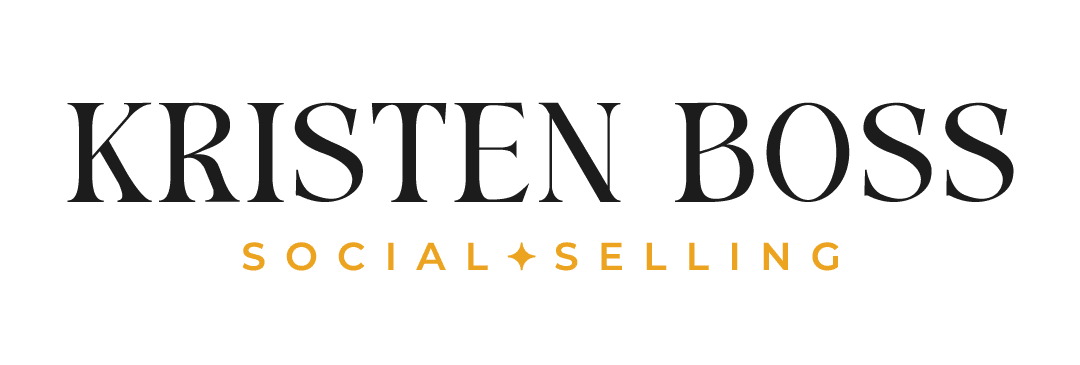As moms, we often find ourselves grappling with guilt—whether it’s about the food we feed our kids, their screen time, or the amount of outdoor play they get. Add entrepreneurship into the mix, and the guilt seems to multiply. Many women, striving to run successful businesses, share this common feeling of battling mom guilt.
Kristen explores the various layers of mom guilt especially as it intertwines with building a business.
Let’s look at a few highlights:
- Recognizing that dreaming big doesn’t equate to escaping motherhood.
- Being a mom and having ambitious goals can coexist.
- It’s crucial to recognize that learning is an investment and not always immediately reflected in tangible results.
- A common pitfall is measuring our worth solely by financial results and deciding whether our business is “worth it.”
- While it’s noble to care deeply about our families, we must question whether mom guilt serves us positively or becomes a barrier to personal and professional growth.
- Reflect on your business and time management habits to identify areas for improvement and create more intentional, quality time.
In confronting mom guilt, we empower ourselves to build the dreams we’re called to pursue. We can be great moms, friends, spouses, and successful business owners – it’s not an either-or scenario. It’s time to stop asking if it’s worth it and start living the lives we were called to lead.
Did you hear? The Rise Up Summit, happening 4/19-20 in Denver, CO, is the room you need to be in.
Every single component of this in-person event will help you grow your audience, your team, and your paycheck THIS YEAR. In this industry, we rise and grow the most when we have someone doing it alongside us…
Get your ticket now! https://kristenboss.com/summit
Thanks for listening! Do you have a question about network marketing? Kristen can help! Drop your question here, and she just might answer it live on the podcast: Kristenboss.com/question
Transcript for Episode #204: Entrepreneurial Mom Guilt
Kristen Boss (00:19): You are listening to the Kristen Boss podcast. I’m your host, Kristen Boss. As a bestselling author and performance coach, I’m on a mission to share about sustainable and purposeful approaches to both business and life. Each week, I bring relevant topics that I believe are necessary to create a life of purpose, significance and meaning. Entrepreneurship is about so much more than growing your bottom line. It’s about who you are becoming in the process and building a life that is truly extraordinary. Entrepreneurship is really just the beginning.
Kristen Boss (00:57): Hey, bosses, welcome to another episode of the podcast. So glad you’re here with me again for another beautiful week. And by the way, if you haven’t bought your tickets for the Rise Up Summit yet, tickets are still on sale for the live event in Denver, Colorado, April 19th and 20th. You guys, the things we have planned are going to be truly epic. So if you haven’t already made time, visited the website, grabbed your ticket, go ahead and head to the link in the show notes and be sure to grab that so we can celebrate with you in Denver, Colorado and really help you grow your business exponentially this year. My, I’m interested in that, exponentially growing your business. So let’s talk about the topic at hand today. And the reason why I chose this topic is because I think it comes up a lot. In fact, I see it come up a lot with my students, with people that send me messages on social media or just ask me some questions, or when I’m coaching people or just talking to people about entrepreneurship as a whole.
Kristen Boss (01:54): I notice this is quite common with women especially, and how often mom guilt creeps up in our business, entrepreneurial mom guilt. And because I think mom guilt is always readily available to us if we want to go shopping for shame. As my therapist calls it, she’s like, well, if you’re going to go shop for shame. And I was like, well, when you put it like that. But I think sometimes mom guilt is always there. Are we feeding our kids the right foods? Do they have enough screen time? Are we getting them the right education? Are they outside enough? Are we doing enough with our gentle parenting? Are we validating their feelings? Are we making sure that we’re raising them right? Respectful? There’s just opportunity everywhere you look as a parent to feel bad or you’re doing something wrong or you’re not measuring up in some way.
Kristen Boss (02:48): And then it creates this perfect landscape for guilt, for parental guilt, specifically mom guilt. And I think us women, we are really hard on ourselves when it comes to kind of how we choose to measure up with what we think motherhood should look like. And so we already have mom guilt just about life, and I really feel like it starts from the moment you become pregnant or carry a child or however you are a mom. It’s the moment you are in charge of a life. It’s like guilt is right there. I’ll never forget when I was pregnant, it was just like, am I eating enough greens? Oh, I’ve had too much coffee. And like, oh, this is terrible. There’s so many things. We just see it everywhere, and I think it seeps into our identity and it starts to, I think, inform our decisions based on if we’re going to feel guilty or not.
Kristen Boss (03:46): And so we already navigate that, but now let’s layer on becoming an entrepreneur and a business owner as a parent. And the guilt, I think that creeps up on top of all the guilt we normally deal with simply for owning a business. And I think it creeps up in a few ways. The first way I think it creeps up is before we even start a business, it’s like this idea of giving yourself permission to want more than motherhood. And I think it’s interesting how I even say that. I think guilt starts right there, like mom allowing herself or a parent allowing them self to have a dream beyond the day to day of motherhood. And I think depending on what your upbringing was, it just depends on what messaging has been enforced in you your whole life. Have you been told that motherhood is the best and only job, the best job of your life and the most fulfilling work of your life?
Kristen Boss (04:52): Now, is there truth to that? Absolutely. But depending on how you’ve internalized the message you might have made that mean it is the only job. It is the only meaningful job. And for me to go out and want to start something else means that I don’t see motherhood as the most rewarding work. And I think that’s where we have, and an or mentality, I can either find fulfillment in motherhood or I’m finding fulfillment in entrepreneurialship. And I will never forget this conversation is this is when I was still doing hair and I was doing someone’s hair, and she was telling me, she’s like, oh, I just know for me, I, and this might be true in her reality, in her thinking, but she said, oh, I just know that for me to have a job on top of motherhood, it’s really just me escaping from all the hard parts of motherhood and it’s really selfish and I would just run away.
Kristen Boss (05:55): Well, maybe that’s true for her. But what was interesting is when I heard that I thought, oh, is that what I’m doing is building a business or working on the side or finding fulfillment in my work, does that automatically mean I’m not finding fulfillment in motherhood? No, it just means I have a capacity to find fulfillment in many things, motherhood being one of them. And I thought it was interesting that she had that story and her experience of like, well, for me to start something else means I’m running away from motherhood or running away from the heart maybe. But I think you could be at home without having a part-time job and still be running away from the hard parts of motherhood. What does that look like? It means hiding on your kindle, scrolling on your phone, impulsive shopping, hanging out with your friends. There are other ways to check out of motherhood aside from having a business.
Kristen Boss (06:50): If we want to escape it, there’s more ways to escape it than just business. But let’s not label having a business as trying to escape the hard parts of motherhood. Now, is it nice to have recognition and put your skills and talents to work outside of the home? Yes, but it doesn’t mean that you’re taking away from your identity in the home. So I just noticed that there’s a lot of, or thinking either or thinking I’m either a good mom and finding fulfillment in motherhood, or I’m not a good mom and I’m not finding fulfillment in motherhood, therefore that’s why I need to have a business. So I just want to debunk that you can be somebody who finds fulfillment in multiple things. It’s no different than in my partnership or in my marriage with my husband, like me needing and wanting girlfriends. It doesn’t mean I’m not finding fulfillment in my friendship with my husband.
Kristen Boss (07:40): It means that it’s healthy and I have the capacity to have other relationships in my life that pour into me and that offer me a different perspective on life. That’s why we have friendships outside of our marriage. This is why we can have jobs outside of the job of motherhood. So it’s, I notice that guilt starts immediately with allowing yourself to have a role outside of being a mom and letting yourself see the value in, I can be a great mom and I can be a great worker or a great business owner. And so those things, and I also think this too, is giving yourself permission to want want more without making it mean that you’re not finding contentment in motherhood, giving yourself permission to have a dream that’s bigger than you. And I notice in motherhood a lot of women, and we just do this, our needs come last.
Kristen Boss (08:32): Perfect example. We will make sure our kids have clothes without holes in them. We size up their pants when it’s time, their shoes, when it’s time. But for us, sometimes we could take forever to finally upgrade our wardrobe. I remember, is this tmi? I don’t even know. But I just remember for me, there was a season where I bought myself new underwear in years, and my husband was like, babe, go buy new underwear. Oh my gosh, this is way too much TMI. But I can’t think of a better example. And it’s so funny because I saw a forum about this, about all these women being like, oh yeah, my underwear is a disaster. It’s like old ratty. I’ve had it forever. And I’m like, man, this is the perfect example that we don’t take care of ourselves of how we come last and making sure everybody else is fed and everybody else’s food is hot while ours is lukewarm.
Kristen Boss (09:25): And we do this with business. We think like, no, no. And this is what I see women do. They put their dreams, they actually not even dreams. They put their dream mean on pause. They’re like, I will allow myself to dream once I get beyond this season of motherhood. And I will just tell you, I’ve just learned, and I’m by no means a long-term mom. I have an eight-year-old and a daughter that’s turning seven. I haven’t been a mom that long, but I’ve been a mom long enough to know there’s always a season and it’s always changing. And my need, my kids are always going to need me. It’s just the capacity at which they need me and the level at which they need me looks different. And so I’m noticing as they get older, the needs are becoming more emotional and with time than they are physical needs, eventually our kids can get to this place where they can meet their own physical needs.
Kristen Boss (10:21): They can make themselves a sandwich. They can go to the bathroom by themselves, buckle themselves in their car seat, which is amazing and all these things. But eventually I find the more they need you physically or the less they need you physically, the more they start to need you emotionally. So there’s always a season. And so I think moms put their dreams on hold and they don’t even allow themselves to have a dream until they feel like, well, once I get my kids to this level or this season, or this is the season where I’m going to pour everything into my kids, then I will start thinking about what I want. And I know this because I talk to so many women that once the kids are out of the house, they don’t know what to do with their life. They’re like, I’m having a crisis, an emptiness crisis.
Kristen Boss (10:58): I don’t know who I am, what I want, what to do with my time, because all of their time was devoted to just being a mom. And mind you, I’m not saying there’s anything wrong with that. I’m just saying it’s also okay to allow yourself to dream and have big goals while also being in the trenches of motherhood. And it doesn’t mean that you’re trying to escape motherhood because you’re dreaming. It just means you are trying to uproot all of the potential that’s inside of you, that there are so many different facets of you. There’s the mother facet of you, the spouse, the friend, the partner. There’s all these facets of you. And it’s like we don’t allow ourselves to explore the entrepreneurial facet because we think somehow it’s like it’s not okay. So I noticed entrepreneurial mom guilt starts creeping in at the start.
Kristen Boss (11:49): Okay, okay, so then let’s get to the part where you’ve finally given yourself permission to dream. You’ve finally given yourself permission to go for this, having an income from home, which is likely who you are because that’s like 99% of my audience. But this is where I notice the mom guilt comes back. So first we give ourself permission to have this dream outside of motherhood to build this thing outside of motherhood. We’ve worked through that guilt, but then guilt creeps back up again and it creeps up during, so we have the before guilt, and now we have the during guilt specifically kind of at the beginning of the journey. And if you are an entrepreneur, you have to know this. The first couple years of entrepreneurship is like the wild west. You are coming in unskilled, ill-equipped. You don’t know things. You are naive, which means it’s going to be messy.
Kristen Boss (12:39): You’re not going to be good at it right away, which means you are not going to be rolling in the cash and in the dough as quickly as you might think. You are starting a business, which means you have to acquire new skills. If you were never taught the psychology of marketing and sales, if you weren’t taught how to use social media, and if you’d never heard of the term funnel or build an email list, and the only email you have is when you email your mom your family Christmas photos, I don’t know. Of course this is a ton of adjustment to make. So in the beginning, there’s the learning curve. And the learning curve is where, what do I want to say here? The weight of all the things you have to learn is much higher and your earning potential is lower. Therefore, you’re learning a lot but not making a lot.
Kristen Boss (13:39): Now, if we don’t manage our expectations, and this is where I see guilt creep back in, is I see these moms learning new skills. That is where you’re at your first six months to a year, all you’re doing is learning skills. You’re skill building. And when you’re skill building, you don’t see a massive monetary return when your skills aren’t that great, which is why as you grow in your skills, your income starts to grow with you. But this is where I noticed in the season of skill building, they pouring a lot of time and effort and energy into the skills, but they’re not seeing a monetary return yet. And this is when mom guilt creeps in. They’re looking at all their time and their effort and their energy spent, and then they’re looking at the money coming in, and then they start to say, this isn’t worth it.
Kristen Boss (14:27): The time I’m taking away from motherhood, especially if you are already dealing with a little bit of guilt and you’ve told yourself, no, this is good, this is good. But now you’re thinking, okay, all this time I’ve taken away all this thing that I’m doing and the financial return of my time and my energy and my effort isn’t worth what I’m taking away from my family. And this is when mom guilt comes back in full force. And this is when I see people quit, take their foot off the gas, say maybe now it’s not a good time, it’s not the right season. I don’t think this is for me because they entered into entrepreneurship completely naive and ill-equipped with the wrong expectations because they convinced themselves the value of entrepreneurship only in relation to the outcomes, meaning the paycheck that they would earn. So they look at like, okay, this is what I want to earn a month.
Kristen Boss (15:26): Maybe it’s $2,000 a month or whatever. And they say, okay, well, it’s worth being away from my kids and changing my schedule and making sacrifices for $2,000 a month. However, however, because they haven’t sold themself on the value of skill building and the value of the process because they’ve only assigned the value or the sacrifice is only worth the financial result they give up during the process because the financial result isn’t there yet. Are you tracking with me? So because of that, they’re starting to question this isn’t worth it. And then they message their friend, they message their family and say, this isn’t for me. I don’t want this anymore. It’s not worth it because they’re playing a short-term game. And they came in with the wrong expectations instead of like, okay, there is value. This is why I want to say you have to see the value in skill building and the process.
Kristen Boss (16:21): That is the only way you will stay in the game long enough to get through the horrible, painful skill building phase when you are making less than what you feel you should be making. You’re putting in a lot of time, effort, and energy, and you feel underpaid. And you have to go through that season before you feel like you are equally paid, being like, wow, I feel like my time, my effort and energy is matching the paycheck I’m getting. And then the sweet spot that less people go through is getting to the place where it’s like, wow, I feel like I’m getting paid way more than the time. The effort and the energy that I’m putting in, that’s leveraged time. But most people aren’t willing to go through the initial painful phase of putting in the time, effort, and energy and not seeing the financial returns yet.
Kristen Boss (17:07): And that’s when mom guilt comes in and they say, well, it wasn’t worth it. They look at the paycheck and they say, it’s not worth what I’m sacrificing for this paycheck. And that’s a very temporary lens instead of viewing. And guys, I want to invite you, welcome to startups, people that do startups that they aren’t playing the short-term game. They’re not like, oh, all these hours and sacrifice and time I’m putting in, it’s not worth what I’m seeing now. No, they’re looking at like, Hey, I’m going to put all this time in this effort and energy in hopes of five to 10 years down the road, I’m going to be able to turn around and sell this company for $40 million and then I’ll be able to build wealth that way. So it’s like they’re playing a five year game, but when you don’t have the right expectations coming into entrepreneurship and you suddenly only have a short-term lens, you’re quitting every other Tuesday, mom, guilt is loud.
Kristen Boss (17:56): Mom guilt is like, look at all this time, you’re taking away from your kids only to be making $500 a month and then you quit because you only see value of the sacrifice when the monetary return is there. And sorry, in entrepreneurship, it just doesn’t work that way. But if you find value in the process and the value of skill building being like, okay, while it is worth the sacrifice and the time away for me to become somebody who learns the skill of marketing, selling content creation, growing an email list, learning to sell people, customer service, branding myself, I’m learning skills that make me valuable in the marketplace, period. So that even if this business doesn’t work, I could pivot to a different business and now I have the skills for it. I could be somebody’s va, I could be a graphic designer. I could go and do all these things or even like, Hey, while I’m building up this business, I can build someone’s designs for pay while I’m growing and building my thing.
Kristen Boss (18:56): But we don’t see it that way. And so it’s just like, and also seeing the value and well, what lessons am I learning about myself? And I was telling my mom this the other day when we were driving, I was like, mom, if anybody was to ask me how I’m growing as a person, ask me what’s happening in my business? Because my business is constantly exposing the growth that needs to happen in my life. Always business and parenthood. Those two areas, actually three areas, business, parenthood, and marriage is the ultimate exposure of areas I need to work on in my own life. And so when you see value in that being like, okay, I might not be seeing the financial return yet. However, the lessons I’m learning are invaluable because it affects, it impacts in a positive way how I interact with my kids, how I interact with my partner, how I interact with my friends, how I interact with my family, how I interact in my community.
Kristen Boss (19:50): There’s value in that. Therefore, because I see value in that, I’m willing to put in the time and the effort and the energy or it’s like I’m, the simple acquisition of these skills is valuable to me, therefore it’s worth the sacrifice of the time and the effort and the energy. But notice I said something earlier, and I don’t know if you caught it, but I said it on purpose and there’s a reason why I said it because we have to reframe it because most people will say, I’m looking at my paycheck and it’s just not worth all the time. It’s taking away from my family. It’s the taking away language. It’s what we don’t see our business, we see our business as something that takes from the family instead of gives to the family. Anytime we use take language, it’s just another open door for mom guilt to come stomping in and make you feel bad about yourself.
Kristen Boss (20:40): And when you feel bad about yourself, the guilt seeps in and so does shame. And then you stop working your business because you feel guilty. Now you’re like, I’m going to go be intentional with my kids, which I want you to be intentional with your kids, but there’s a way to do it, friends. There’s a way to stop thinking I’m either intentional in parenthood or I’m intentional in my business, but I’m not intentional on both. And you guys, this is, I don’t subscribe to that. I don’t subscribe to that story because in my life, I could tell you I’m intentional in parenthood, I’m intentional in my business, I’m intentional in my marriage, I’m intentional with my fitness. And I don’t know if you’ve ever heard the saying, but be where your feet are. It’s like, okay, when I am being a mom, I’m fully being a mom.
Kristen Boss (21:22): When I’m being a business owner, I’m fully being a business owner and I’m never believing I’m stealing or taking from other roles in my life. It’s like, no, I can thrive in this role and then I’m going to thrive in this role. I’m going to thrive in this role. And listen, I just want to tell you, if you’re a woman, man, you are a boss at multitasking, we wear so many hats. You’re the house household coordinator, you’re the chauffeur, you’re the sports coordinator. You have so many things, you can excel in so many roles. And so to believe that you can’t build a business while also being a mom is literally what you were saying is I can only excel at one role in my life. And I think we are limiting ourself. We’re shrinking ourself and shrinking our potential when we limit what we believe we are capable of.
Kristen Boss (22:05): And then when we limit what we believe we’re capable of, we actually start creating that reality. It was like, see, I only have the reality where I’m good at this, but not at this. I can’t be good at both right now. Can you be excellent and perfect at any of them? No, because I don’t believe in perfect. But can you be good? Yes you can. Okay. So that skill building process when the financial return isn’t there yet, that is the other avenue where entrepreneurial mom guilt comes up. It’s when we only value the results, financial results, and we don’t value the process because I will say this too, if only the results make it worthwhile. If your paycheck is the only thing that’s informing you if it’s worthwhile or not, you are constantly going to be reevaluating your business. Do you know how often I deal with this?
Kristen Boss (22:50): I hear this. I don’t know if it’s worth it. Are you saying that because you didn’t like last month’s paycheck? Let’s zoom out for a second here. Where do you want to go? Let’s look at your five-year vision and then ask. Then let’s sit with is it worth it? But to look at last month’s paycheck and make this huge decision and be like, I think I’m going to throw in the tell on my business. And I will say, if you only value the result of your business, then you’re constantly going to be reevaluating your decision of being in the business of being a business owner. For me, if we have a bad month, it’s a bad month. I’m not questioning if I need to be a business owner. I’m like, no, this is part of business. Some months are down, some months are up, but I know where I’m going.
Kristen Boss (23:29): But if we only find value in the results, then you’re going to constantly be putting your business on the decision block every time you feel bad in your business, deciding if now’s the time to quit. And if you’ve been stuck for a long time and you are like, yeah, but Kristen, my paycheck hasn’t grown in three years and I’m stuck and I’m not sure it’s worth it anymore. You have one of two options. One, you quit. You decide this isn’t for me. Or two, you pay for the skills. You invest in the skill building to accelerate your paycheck because what you’ve been doing hasn’t been working. You just grabbing that free little training from that person over there, that download from that person over there, that podcast thing over there, all it’s done is added to your confusion and hasn’t streamlined and simplified what actually makes you money. So you either need to quit or you need to invest, and you decide you either invest more time and effort and energy figuring it out on your own, or you invest with an expert that helps shortcut that for you. So I’m going to say the third area, the third area where mom guilt creeps in is with our time.
Kristen Boss (24:38): So first one is giving herself permission to dream, allowing ourselves a both end reality. The second one is when we’re skill building and when we only value the results. The third one again, is with our perception of time, and this is what I believe, whatever stories we have about parenthood and what makes us a good parent. So you might have the belief, I’m a good parent when I spend more time with my children, and I will say, you can spend eight hours with your kids if you make it about quantity. You can be home with your kids all day long, but it won’t be quality time. Because what if you’re scrolling, reading, watching tv, distracted doing chores? I could say, okay, yeah, but is it quality time? Is it intentional time? Or are we putting too much value on the quantity of time spent with our kids instead of the quality of time? So for me, I’m like, okay, if I have three to four focused hours with my kids a day, that is intense quality time I have with my kids. Therefore, the phone’s away, my work is done. I’m not answering questions in my Slack channel. I’m not talking to people on my team. I’m fully all in as a mom because I believe in quality of time versus quantity of time. And how we do this is I become a fierce guardian of my time.
Kristen Boss (25:56): I set in parameters of I have business hours, period. I work from this hour to this hour. I have it in my calendar. I have out of office hours. It’s blocked. My team knows like, Hey, from three to six o’clock, from three to six o’clock, I’m doing homework. I’m doing dinner, I’m doing dance practice and soccer practice and lacrosse practice. I’m doing those things. And if you absolutely need me, I can maybe answer a question or two once the kids are in bed. But chances are, and my team knows like, Hey, let me define what urgent means and then you can ask me questions. But usually at three o’clock they’re sending me all like, Hey, the last minute pressing items of the day that I need to answer, and I answer those and then I disappear. And then if I absolutely need to do something, and I will say in the earlier seasons of entrepreneurship, I didn’t have a team to do that obviously, but I became very fierce around my time being like, okay, I can work while the kids are in preschool or I can work when there’s a sitter.
Kristen Boss (26:52): These are my structured hours, and then I’m going to touch base. At the end of the day, I think I remember from eight o’clock to nine o’clock I would do my last remaining tasks of the day that needed to get done. So again, it’s like you have to become a fierce guardian of your time. Your mom time is your mom time, your business time is your business time. But if you are hanging out with your kids at a play date and you are distracted and scrolling on your phone and answering a direct message that came up here, it’s answering a customer here, doing a thing there. Of course you feel guilt because what’s happening is you’re not really all there. You’re kind of like you got one foot in entrepreneur, one foot in motherhood. And I think it’s because we’ve conditioned and preached the philosophy of working this business in the nooks and crannies of your day.
Kristen Boss (27:35): And I hate it so much because what it does is I think it creates stress. I think it prevents you from being productive with your time. I think it makes you scattered and unfocused. It makes you feel like you’re working all day long because if you’re constantly picking up your phone here, constantly picking up your phone there, you’re never truly effective. You’re never truly productive. You never get to the point where you allow yourself to be in flow and knock a bunch of things out at once. Like 30 minutes of focus time set apart. You will get more done than four hours of distracted work. Try me on it. You would shock yourself. And this is why so many of my students in the Social Science Academy, when they actually use our Go-getter challenge, and we have a very simple process. It’s like, just do these things, do this in order.
Kristen Boss (28:17): And even if you split it like 30 minutes in the morning, 30 minutes in the evening or whatever else, they’re shocked by how many hours of their day they get back. And when we get back hours of our day, we’re less burnt out in our business and we’re not constantly revisiting the is it worth it conversation? And if you’re scattered around eight hours a day, like picking up your phone here, answering a question here, feeling very scattered in your work and you’re not fully present as a parent, not fully present as a friend, and you’re just a little bit everywhere, of course you’re overwhelmed. Of course you’re questioning if it’s worth it, but it’s not the business that’s the problem. It’s your ability to manage your time. But then what we do is we don’t see that and we label it as then we let mom guilt come in and be like, oh, I’m not being a present parent.
Kristen Boss (29:04): I need to step away and really give time to my family. And I would ask you, what needs to change in your business? Not removing the business, but what needs to change with your time and your business habits and your business activities to create more quality time with your family? You might need to have stronger parameters around your time being like, all right, scroll time. If I want to scroll, I’ll get up early to scroll. If I know that it’s crazy from 7:00 AM to 11:00 AM in my house, and listen, if the only time for you to work is at 6:00 AM then that’s what it has to be for a season until you get your business to a place where you can hire somebody to maybe watch your kids or do some things so that you can move your business hour to a different time of day.
Kristen Boss (29:53): But in the beginning, it’s icky in the beginning. You work with what you have, you use what you have, and you work within your own schedule. So when we believe our value is based on the quantity of time, and we can even do this in business, I know people that they’re like, oh, I spend 10 hours a day on my business and it’s still not going anywhere. I’m like, I’ll bet you anything. They’re not productive hours. I’ll bet you it’s like you’re listening to a podcast, you’re making graphics, you’re only talking in your customer groups and you’re not engaging or networking with new people, or you’re scrolling, you’re doing research, you’re editing the same post for 45 minutes. I’d be like, yeah, it’s not a productive eight hours. It’s not a focus eight hours. But if we were to really just put constraints around this, you can get this done in 60 minutes.
Kristen Boss (30:41): People don’t believe me. They’re like, there’s no way, Kristen. And then they do one of my challenges, or they enter in the academy, they’re like, you’re right, it could be done in 60 minutes a day. I’m like, you’re welcome. And their paychecks grow, right? And so this idea of when we believe it’s quantity versus quality, guilt is always there. Like, oh, the quantity of hours that I have to put in versus the quality of my hours both in motherhood and in business. I’m going to say this one last thing. I think guilt, mom guilt is a permissible emotion. We allow ourselves to feel, because we think if I feel mom guilt, it’s a reflection of how much I love my children and how much I care. And it’s almost like the intensity of my grief reflects the intensity of my love for somebody maybe. But it’s just like, okay, or is it the idea of, oh, the intensity of guilt informs me how much I care about motherhood?
Kristen Boss (31:55): And so I think we feel like it’s, I’m going to call it a noble emotion. I think we assign nobility to it, meaning of course I care, but it doesn’t make us feel better. Does it actually serve us? Let me ask you this, does mom guilt actually serve you? Sit with that. Does telling yourself, I’m not being a good mom, I’m not giving my kids enough. I’m not measuring up in some way. Does it actually serve you and does it actually serve your family? I’ll give you a hint. It doesn’t. It doesn’t. But we think it does. We think it’s a noble emotion, and therefore when it’s a noble emotion, I think we assign, we make it a noble reason to not work the business, because who’s going to question you on that? If you’re like, I need to go spend more time with my family, suddenly this becomes an untouchable story that no one’s allowed to challenge.
Kristen Boss (32:46): Think about that. No one’s allowed to challenge your story because you almost create a no touching zone with that being your reason of why not to have a business. Because then if somebody challenges you, then you can make it mean that, oh, they are trying to not make me be a good mom, or they don’t value parenthood or all of those things. It’s like, who can argue with that? It’s almost like we know. I think it’s hiding behind. My husband says, I can’t, instead of we get to hide behind, oh, well, it was my husband’s decision, therefore I don’t have to live with that. Versus my decision was that I don’t want to have to ask that. I get to hide behind his decision. Just like I get to hide behind mom guilt for my reason to not grow a business, and it feels noble because when that’s my reason, then I don’t actually have to look at the real reasons of I wasn’t managing my time and I have unrealistic expectations, and I’m not willing to go through the skill building phase. I’m not willing to invest to grow my skill sets. I’m not willing to put in the sacrifice or the time. I have unmanaged expectations. I’m scattered in my work. It’s like when we allow ourselves to say, oh, the reason why I’m putting this to go focus on my family, we’re not really evaluating. Maybe it’s because I didn’t manage my time or my expectations, or I needed stronger boundaries and systems in place.
Kristen Boss (34:28): And now I do think there is a season and I’m talking about just the average, just life. I’m not talking about dealing with a terminal illness or you needing to be someone’s full-time caretaker, and a tragedy has happened in your family. That is not what I’m saying. That absolutely is an exception. And that would be like, yeah, put your business on hold and you got to go handle that, right? But we’re talking life and death and life altering tragic circumstances. What I’m talking about with this mom, guilt is life, everyday life. And it’s so funny when they don’t focus on their business, they say, well, life got in the way. I’m like, dude, life’s always getting in the way. What are you going to stop using this as an excuse and realize, listen, life is always going to throw me a curve ball. What bat am I going to use?
Kristen Boss (35:26): How do I need to change my swing? And clearly I’m not a baseball player, but that’s what I’m saying, is understanding that life is always getting in the way. So what are you going to do instead of using, oh, life is so crazy right now. I need to take a break. Listen, life’s always crazy. And sometimes when life is crazy, it might mean you need to get better at what you’re saying no to and what you’re saying yes to. I say no to a lot more things than I say yes to. And trust me, I get fomo, especially in my season of life. There’s so many opportunities for me to travel and be at these amazing events. I’m asked to guest speaker a lot of different things on top of my keynotes, on top of my mastermind. Our travel calendar is booked solid this year, and I’ve had to say no to so many things still.
Kristen Boss (36:15): I’m like, wow, I’m having to say no to a lot. So the question is, what’s my best? Yes. And I think sometimes we say yes to too many things. We get overwhelmed. We have an overpacked schedule, and the thing we take off is our business. We’re like, well, all of these things, I’ll revisit my business instead of for me. I never say no to my business because it is what provides for our family. And even when I was starting out, I was like, I’m not going to say no to my business. I know it’s going to provide for the family. I know where we’re going with it. I was so focused on the future vision instead of what I was currently seeing in front of me. So that’s my challenge for you. Maybe this was like an uncomfortable gut punch episode, but I want you to stop using mom guilt as a noble reason to not build the dream you have in your heart and not see all that you were capable of and reach your potential and understand just how much capacity you have for multiple roles in your life and excelling in many of them.
Kristen Boss (37:12): You could be a great parent and a great spouse and a great friend and a great business owner and run a good home. You can. Does that mean you’re going to be perfect at all of them? No. Sometimes it just means we have to adjust our expectations. So just to recap, you have to evaluate, you have to find enough value in the process instead of the results so that you’re not constantly asking yourself, is it worth it? Look at the process and decide it’s worth it ahead of time. You have to look at the future instead of being so caught up in the present, focus on the quality of your time and maximizing your time with the time you have. Instead of thinking you need to add more hours to make it quality, especially in relationship with our kids. How can I have the best quality? And intentional time means like, Hey, when I’m with my kids, I’m with my kids. When I’m in my business, I’m in my business. And stop using guilt as a noble reason to not do the thing you were called to do. Alright, friends, we’ll catch you in next week’s episode.
Kristen Boss (38:23): That’s a wrap for today’s episode. Listen, if you love what you heard here today, I would love for you to leave a real quick rating and a review. This helps the show get discovered by new people. Be sure to take a screenshot of today’s episode and shout us out on Instagram. We’ll shout you right back out. If you’d like to find additional resources or discover how to work with me, head to kristenboss.com.










